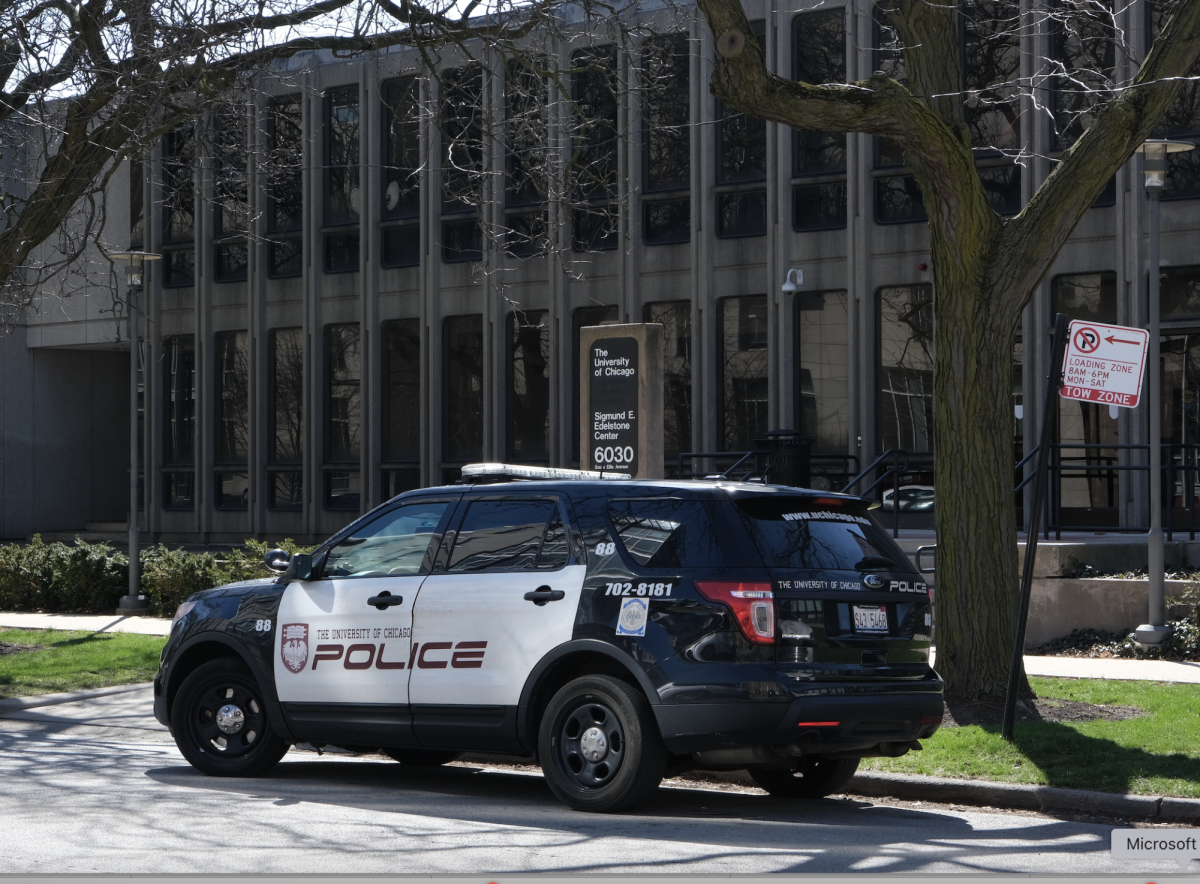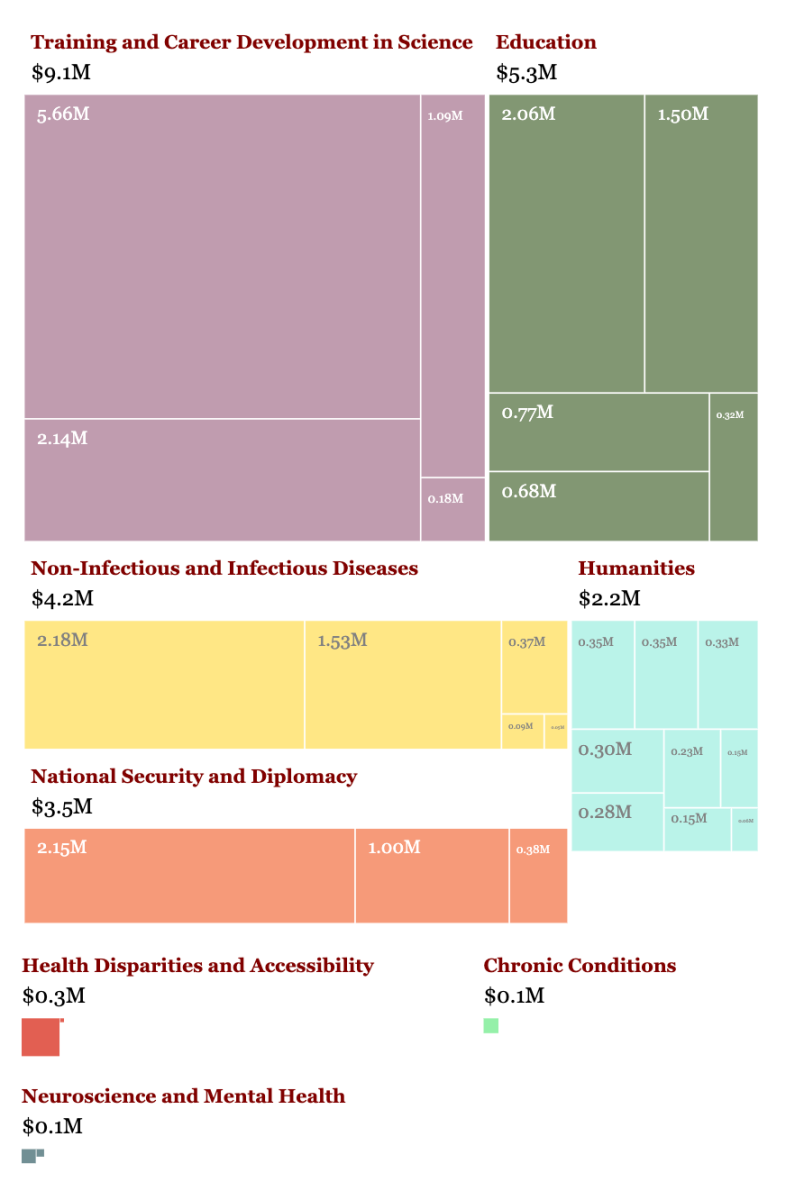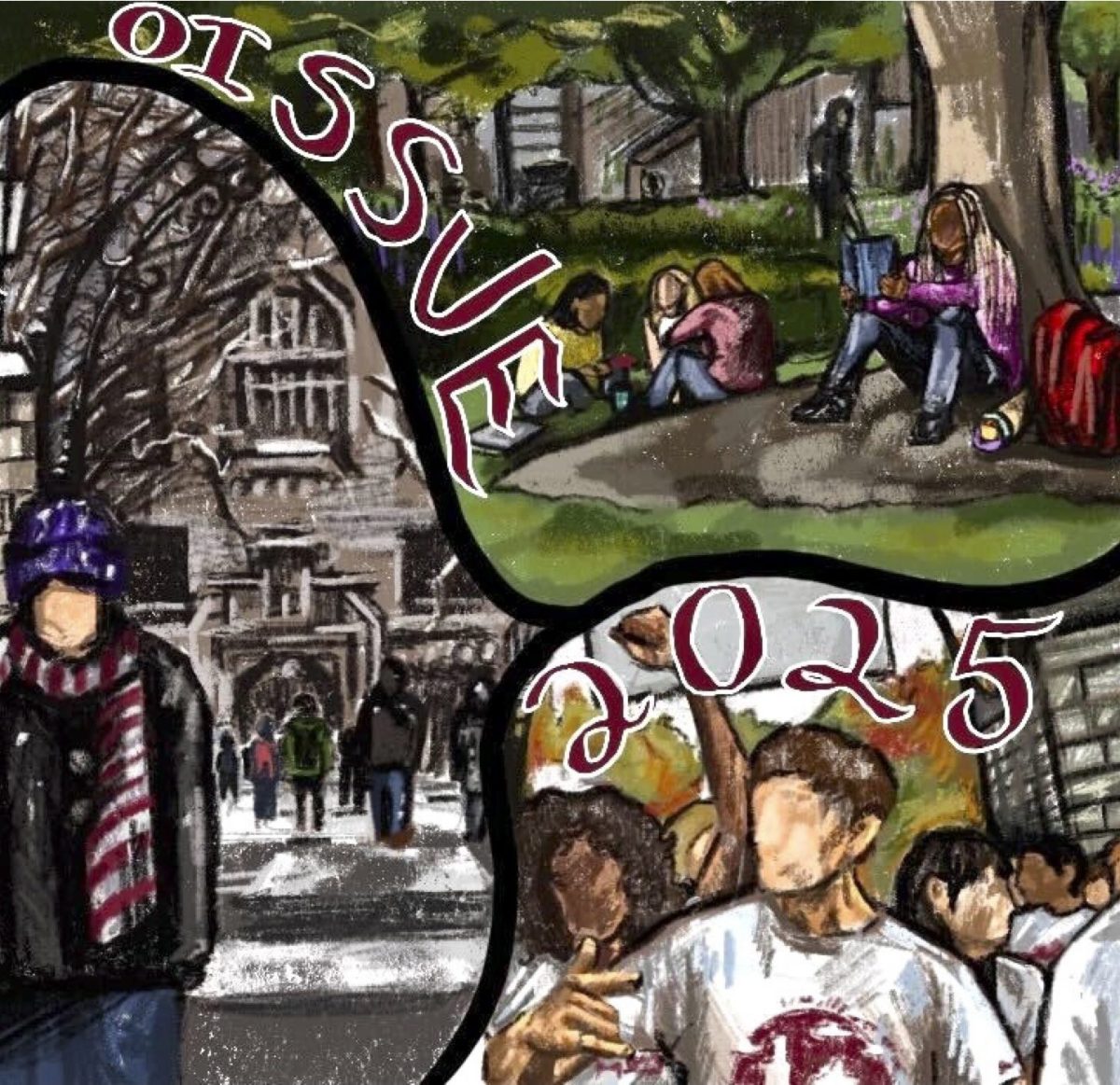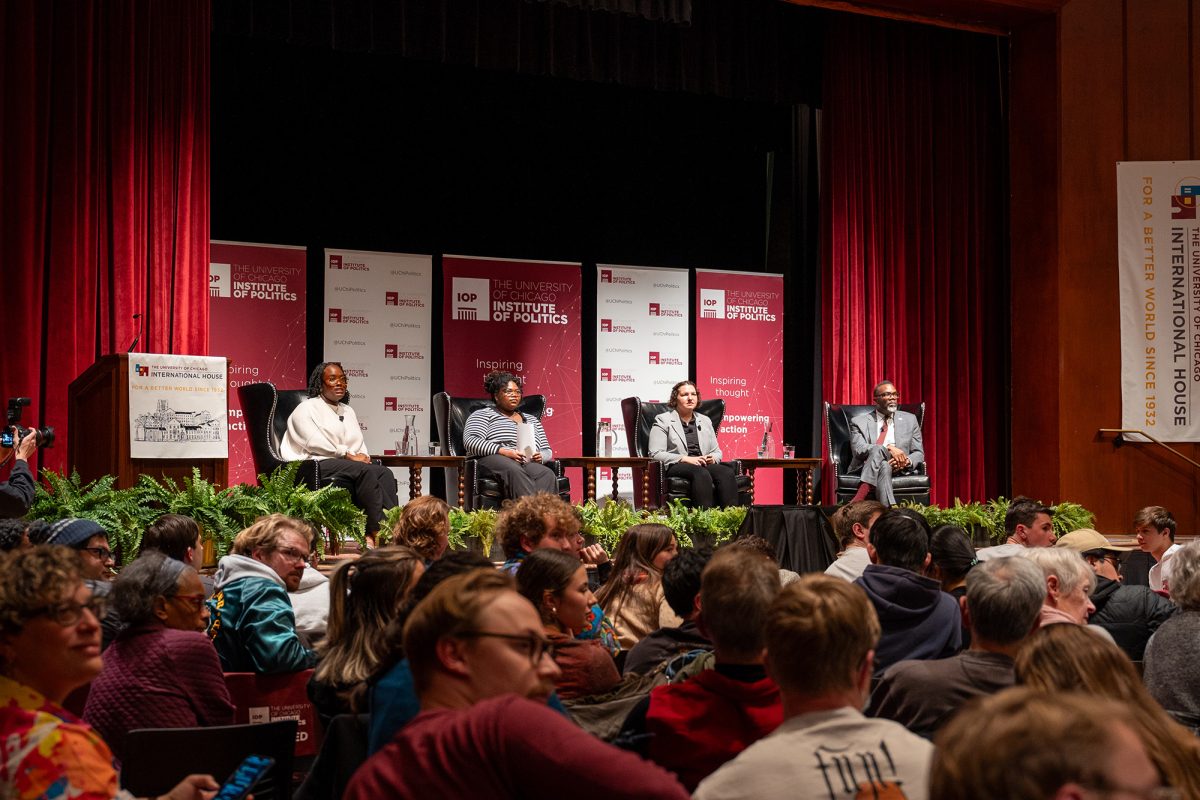Adrian Johns, the Allan Grant Maclear Distinguished Service Professor of History, has taught history at the University of Chicago for over 20 years. Last fall, he was approached by a journalist from the Atlantic who, he explained, wanted to speak with him about how “college students don’t read anymore.” Johns seemed like a natural choice for such a topic—just the previous year, he had published The Science of Reading: Information, Meaning, and Mind in Modern America, a book he described as exploring “what scientifically happens to people when they come across the written word.”
In the published article by Rose Horowitch, Johns was quoted describing UChicago as “the last bastion” of reading.
According to Johns, his encounter with Horowitch was just a brief phone call. “She said that students tend not to read books anymore and I just had a[n] immediate reaction and thought, ‘As far as I know, the students I deal with read books… as much as you’d expect them to,’” he told the Maroon. “And so I ended up getting quoted as, I think she calls me, the ‘lone dissenter.’”
The exact quote from the Atlantic piece frames UChicago students as a foil to other elite college students. “Over and over, the professors I spoke with painted a grim picture of young people’s reading habits,” Horowitch wrote. “The historian Adrian Johns was one dissenter, but allowed, ‘My experience is a bit unusual because the University of Chicago is, like, the last bastion of people who do read things.’”
The quote—which Johns hadn’t even expected to be included in the article—drew notice both within and beyond the University community. “It was a weird thing that I got so much attention for an odd, off-the-cuff, one-line thing,” he said. “[But it] does go against the [current] conventional wisdom, which is that… we all suffer from distracted attention. And that, coupled with the eternally predicted end of the book, means that we infer that students don’t read books anymore.”
Johns added that he stands by what he said, even if it was off-the-cuff.
“It’s not that I have data that show that students at the University of Chicago actually read whole books. It’s just that my sense, from talking to them, is that they do,” Johns said. “I think… the same is true on the other side, for people who think that students don’t read books at all.… The real problem is not so much that students are not reading books, it’s [that] maybe the professors are not assigning books.”
At the University of Chicago, professors in the humanities core often assign full books rather than excerpts. The humanities sequence—taken by all first-year students—includes courses such as Philosophical Perspectives and Human Being and Citizen. Based on a review of syllabi from these classes, full books are assigned in the majority of cases, with some courses in these sequences even assigning them nearly 100 percent of the time, depending on the instructor.
For example, in the fall quarter of the 2024–25 school year in Human Being and Citizen, one section read The Epic of Gilgamesh in its entirety, most of the Iliad and Genesis, all of Antigone, and Plato’s Apology and Crito. Other sections were assigned a similar workload, with slight variations in which texts were read in full.
At UChicago, as at many other elite universities, professors are assigning complete works.
Harvard students are assigned Letter from Birmingham Jail in its entirety in English literature, history, political science, and other humanities-based courses. For Yale students, Plato’s Republic is a popular title in philosophy courses. At both Columbia and Princeton, The Clash of Civilizations and the Remaking of World Order by Samuel Huntington is assigned in many political science and history classes.
But the question remains: Are students actually reading them?
The Never-Ending End of Reading
“The luxury of teaching at UChicago, especially with creative writing, is that you recommend an author and students immediately read it, and the students end up being shaped by them,” said Vu Tran, the director of undergraduate studies in the program in creative writing. “You feel like your suggestions are of consequence. What I’ve noticed here is an excitement for reading, for discovery.… I didn’t know it was that exceptional until I read the Atlantic piece.”
According to Johns, this debate over how much students actually read is age-old; teachers have long lamented their students’ lack of reading, and students have been cutting corners for centuries.
“The part of [the debate] that I guess I’m most skeptical about is this notion that there was once a golden age where students read everything,” Johns said. He pointed out that in the 17th century, Degory Wheare, Oxford’s first Camden Professor of Ancient History, assigned to his students The method and order of reading both civil and ecclesiastical histories, a book he wrote that Johns described as teaching students how to summarize, skim, and cut corners when reading for schoolwork.
“It’s not that, back in the 17th century, all these students were diligently reading all the way through Polybius or something,” he explained. “They were playing the game.”
Even at UChicago, these concerns have been persistent. One Maroon article published in 1897 described how students in Chicago schools, particularly younger children, were not reading enough. Another op-ed, written by a professor in 1925, claimed that students didn’t read enough “serious” books.
In 1937, the Maroon published an op-ed where the author gives examples of students avoiding readings for class. “The system… permits students who are adept at cramming to breeze through their academic work without getting much of lasting value,” the article reads. “Take the example of a Political Science student we know…. In his first year here he… took things fairly easy, doing only about one-fifth of the ‘indispensable’ reading in Soc and one-third in the Humanities.”
And on October 12, 1982, an article was published about a lecture given by former Dean of the College Wayne Booth, where he described a “decline in quality of reading of educated people.”
To Skim or not to Skim: The Student Perspective
The Maroon spoke with 12 students sitting on the quad last spring. Some were chatting with their friends, others were working on their laptops, and a few were even—believe it or not—reading books.
One of the main claims in the Atlantic piece is that students not only don’t read entire books, but they don’t know how to read entire books on a shortened timeframe for class because they have never been required to before college.
When asked whether or not they had read full books in high school, all 12 students said yes; 11 even said they had read “many.” Among the titles they remembered reading, works like Fahrenheit 451, The Great Gatsby, Brave New World, Jane Eyre, 1984, Huckleberry Finn, and the Odyssey were mentioned by 10 of the students.
Second-year Julia Volpp pushed back on the idea that undergraduates don’t know how to handle entire books. “In high school, I definitely read full books, usually at a slower pace,” she said. “But those skills are still transferable. Professors here often narrow down the scope of readings for us by assigning chapters instead of full books, but I don’t think that means students are becoming dumber—it’s just a more realistic adjustment to shorter quarters and heavier workloads.”
All 12 students said they had been assigned an entire book in at least one of their classes during their time in the College. Though some students had read fewer, or more, depending on their major, all had read at least one entire book for an assignment. Nine students were currently reading an entire book for class, and six cited core classes like their humanities and sosc sequences as the last time they had been assigned an entire book.
When students were asked to name their favorite books, many struggled to choose just one, but, contrary to the fears expressed in the Atlantic article, classic names like Jane Austen and Agatha Christie weren’t missing.
Volpp explained that, due to the amount of reading she is assigned, the amount of reading she does for fun has wavered. “There’s so much reading that I need to do for school that… I do all my leisure reading during breaks now.”
When asked whether or not they read for fun, most students said that they did, but that they have less time to do so with the intense workload at UChicago, echoing Volpp’s experience. Fourth-year Nina Maxin added that she reads for fun but, “[I don’t] do it as often as I would like. I feel like I struggle with decisiveness and choosing and finding a book that I feel like I’ll really stick with.”
Other students shared that they felt like the amount of reading they are assigned in their classes makes them less eager to read for pleasure.
Tran explained that he had the same experience in college. “When I was in college, I stopped reading for leisure because I had so much to read first for school, and, even in the summer, reading would feel like I was back at school.”
Tran’s story reflects a broader, long-standing pattern. Johns noted that, in the 1990s, faculty were already observing students turning away from longer works, a trend that sparked debate among his colleagues. A colleague “told me then that she’d been dismayed to find that her undergraduate students prefer poetry because, as they put it, ‘it’s shorter.’”
The Legend of the Last Bastion
According to data shared with the Maroon by the University, during the 2024 fiscal year, 8.1 million electronic articles and 650,253 electronic books were checked out from the Joseph Regenstein Library—UChicago’s largest collection of books. In terms of physical books, the volumes were circulated to 9,491 unique individuals, though not all of those individuals may be affiliated with the University, as the library is open to the public.
The Maroon also reviewed data regarding the Reg Reads collection, a “collection of recently published popular fiction and non-fiction” at the library designed for leisurely reading. Launched in 2022, the Reg Reads collection features more than 1,100 books intended for leisure reading. As of May 12, 2025, items from the collection have been checked out 3,675 times. Of these, 2,478 checkouts were by UChicago students, with 48 percent by undergraduates. The most checked out Reg Reads title is Babel by R.F. Kuang, a fantasy novel that reached first place on the New York Times bestseller list.
The checkout data seems to suggest that UChicago students still make time for books. Whether that makes the University the “last bastion” of reading—or just one of many—is less clear.
For Johns, though, there is something special about UChicago, even beyond the hard numbers, that attracts—or creates—readers. “When I go into classrooms here… [there is] this atmosphere where pretty much everybody in the classroom has read at least enough of the assignment that they’re able to comment critically, and they will go back and forth with each other and argue,” he said. “I don’t get the sense that it’s particularly weakened over the years… [even though] the College[’s] size has gone up substantially in that period.”
Tran echoed Johns, emphasizing that what makes UChicago distinctive is its culture. “People here don’t pursue what they pursue just for professional reasons, at least in the humanities—they pursue it for its own sake,” Tran said. “When you have that level of enthusiasm and curiosity about a subject, it can create an atmosphere where you have a feeling like that—[that] this is the ‘last bastion of reading.’ So even if it’s not empirically true… I think the feeling is real.”
Perhaps the better question, then, isn’t whether UChicago is the last bastion of reading, but whether that “last bastion” even exists. “Change is inevitable,” Volpp said. “Expecting students to read a [large] volume of words just because that used to be the norm isn’t the best way to measure the strength of a school.”
People have always worried that students weren’t reading enough, but students like Volpp continue to read Plato and Austen alongside their Kuang. What matters, she suggested, is not protecting a so-called golden age of reading that existed more in nostalgia than in truth.
“To me, a bastion is a silly thing,” Volpp said. “It’s more important to ask whether we’re moving in the right direction than to compare the present to an idealized past.”















Matt Pearson / Oct 21, 2025 at 6:44 am
My father said that one of the great things about a liberal arts degree is that it provides you a lifetime reading list.
JJ / Sep 25, 2025 at 6:03 pm
As a recent graduate, I can attest that the “last bastion” trope belongs to the realm of mythology, not observation. In Core seminars and upper-level courses alike, I routinely witnessed students relying on précis, AI-generated outlines, and pre-digested commentaries while faculty averted their gaze.
What persists is not a culture of rigorous engagement but of routinized shortcuts, masked by nostalgic self-promotion. Invoking UChicago’s “bastion” status now functions less as description than as ritual self-congratulation—an outdated gesture from people (mostly bored, ignorant alumni) unwilling to acknowledge how far standards have already slipped.